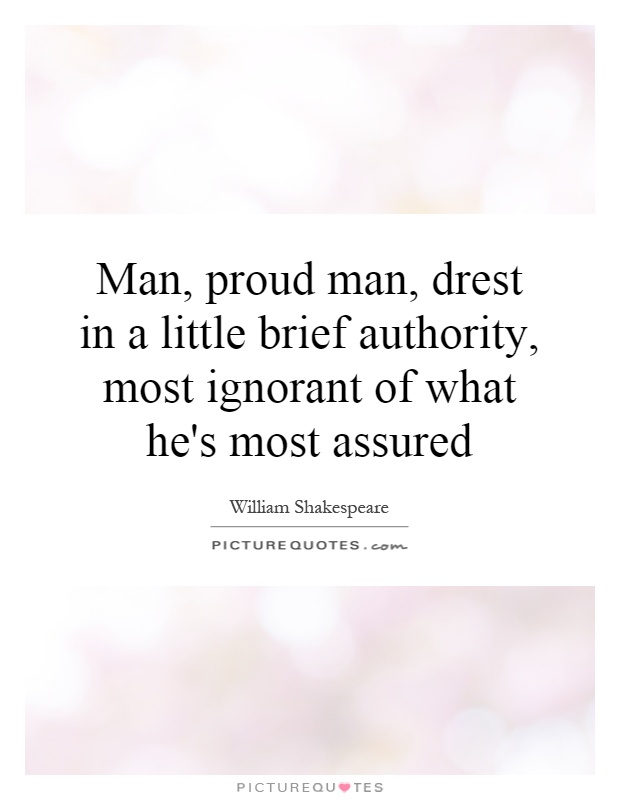Man, proud man, drest in a little brief authority, most ignorant of what he's most assured

Man, proud man, drest in a little brief authority, most ignorant of what he's most assured
In William Shakespeare's play "Measure for Measure," the character Angelo speaks these words in Act II, Scene 2. This quote reflects the theme of power and authority, and how those in positions of power often abuse their authority due to their ignorance and arrogance.Angelo, the deputy to the Duke of Vienna, is given temporary power to enforce the laws of the city while the Duke is away. However, Angelo quickly becomes drunk on his own power and begins to abuse it. He becomes obsessed with enforcing the strict laws against fornication and adultery, even going so far as to sentence a young man named Claudio to death for impregnating his fiancée before they were married.
Angelo's character embodies the idea of a man who is "drest in a little brief authority." He is given a temporary position of power, but instead of using it wisely and justly, he becomes arrogant and tyrannical. He believes himself to be above the law and acts with a sense of self-righteousness, despite his own moral failings.
The phrase "most ignorant of what he's most assured" further emphasizes Angelo's ignorance and hypocrisy. Despite his outward appearance of righteousness and authority, Angelo is blind to his own flaws and shortcomings. He is so assured of his own moral superiority that he fails to see the corruption and injustice in his own actions.
This quote can also be applied to the broader theme of power and authority in Shakespeare's works. Throughout his plays, Shakespeare explores the dangers of unchecked power and the ways in which those in positions of authority can be corrupted by their own pride and ignorance. Characters like Macbeth, Richard III, and King Lear all fall victim to their own hubris and arrogance, leading to their downfall.












 Friendship Quotes
Friendship Quotes Love Quotes
Love Quotes Life Quotes
Life Quotes Funny Quotes
Funny Quotes Motivational Quotes
Motivational Quotes Inspirational Quotes
Inspirational Quotes